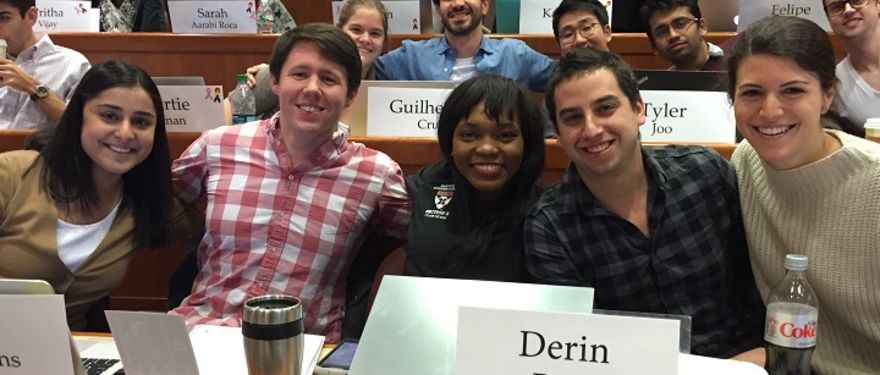You get a lot of good advice at HBS. I’ve kept pretty much every single sheet of paper I’ve received while I’ve been here, trying to retain it for later. One sticks with me now as I head back into the world of work. On the last day of my Venture Capital & Private Equity course in April, my professor left us with: “to increase the value of a call option, crank up the volatility.”
At first, this doesn’t sound inspirational. Let me explain.
When I arrived at HBS, after four years of building software, I had no finance training beyond balancing my checkbook. I wasn’t looking forward to learning more, either. Coming from startups, traditional finance didn’t sound relevant to the world I worked in. It certainly didn’t sound like fun.
But, of course, Finance is required - two whole semesters - in the first year “required curriculum”. And in a way that I’ve learned is typical of HBS, the subject grows on you. At first you’re afraid of it. Then you’re taken in by the professor’s obvious enthusiasm for their work. Finally, like learning a language, you’re using the concepts yourself, seeing them applied across other areas of your life.
You find finance concepts like “net present value” get right to the core of the decision to get an MBA: “Is two years away from work and this tuition going to be a worthwhile investment in myself?” It’s also present in more mundane decisions while you’re here: going to the gym, getting enough sleep, and calling your parents are all upfront investments in future payoffs.
This is where the call option comes in. In the second-semester Finance course, you’re introduced to the Black-Scholes method of option pricing. I'll leave the specifics to your professor, but the intuition is this: you spend money to buy an option on a stock, betting the underlying stock will go up in the future. But you're never really sure -- because the stock price could just as easily go down. The higher the volatility of the stock, the higher the risk of extreme upside -- and extreme downside.
My professor was making the analogy to life after HBS. In coming here, you’ve devoted significant time and money to your education. In effect, you’ve bought a call option on a direction you’d like your career and life to go. You leave here believing that the value of your career will go generally up in the future, and the upside could be huge.
But you’ve simultaneously capped the downside risk by getting an MBA from Harvard. This means you also bought a “put” option. Your working life will now have a pretty well-established foundation; if your first few wild ideas don’t work, many people and companies will still want to hire you, fund you, buy from you. Your downside much is less extreme than your upside.
Unlike a stock on the market, you can impact the volatility in your own career by doing something exciting. Try bold, maybe even crazy, things. Start a company. Work in government or a nonprofit. Join a company somewhere you’ve always wanted to live. Try something you don’t know how to do, just because it sounds cool.
Don’t obsess over the downside; your experiences and education here have you pretty well covered. Crank up the volatility.

